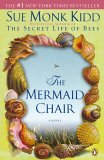Summary | Excerpt | Reading Guide | Reviews | Beyond the book | Read-Alikes | Genres & Themes | Author Bio

Everyone in Emlyn Springs, Nebraska, knows the story
of Hope Jones, the physician's wife whose big dreams
for their tiny town were lost along with her in the
tornado of 1978. For Hope's three young children,
the stability of life with their distant,
preoccupied father, and with Viney, their mother's
spitfire best friend, is no match for their mother's
absence. Larken, the eldest, is an art history
professor who seeks in food an answer to a less
tangible hunger; Gaelan, the only son, is a
telegenic weatherman who devotes his life to
predicting the unpredictable and whose profession,
and all too much more, depend on his sculpted frame
and ready smile; and Bonnie, the baby of the family
is a self-proclaimed archivist who combs the
roadsides for clues to her mother's legacy, and
permission to move on.
When, decades after their mother's disappearance,
they are summoned home after their father's sudden
death, they are forced to revisit the childhood
tragedy at the center of their lives.
Review
I am singing praises for Sing Them Home, a
delightful read. It has what any good musical and
literary composition should have—a unique melody
with harmony, tempo, lyrical style, rhythm, lulls
and crescendos building to a stunning climax. It
also has characters to cheer for in spite of all
their foibles. Perhaps that is why it is so easy to
like them. Who could not sympathize immediately with
three young children, ages 7-14, whose mother was
swept away in a Nebraska tornado never to be found.
Not a trace, not even of the wheelchair that encased
her body ridden with multiple sclerosis. Sing
Them Home could be a depressing story, but
instead I found myself smiling and laughing quite a
bit as Stephanie Kallos depicts, with humor and
sensitivity, life in Emlyn Springs, Nebraska, a
fictional town thirty miles from Lincoln.
Kallos has created a familiar fictional scenario -
adult children reconvening at the death of a parent,
who find themselves reminiscing and re-examining
their lives, but therein the similarity ends. There
is nothing ordinary about this funeral or the
children themselves. Her story line is as unique as
the characters.
As I attempt to analyze their uniqueness, what comes
to mind is the opening line from Tolstoy's Anna
Karenina "Happy families are all alike; every
unhappy family is unhappy in its own way." This
family's "unhappy way" could be called "emptiness"
as the children try to fill the hole left by their
mother's abrupt disappearance. Although the father's
funeral is the catalyst that brings them home, the
story is about their lives with their mother, her
disappearance and the impact this loss has had on
their lives for decades.
Larken, the oldest daughter is an art history
professor who tries to fill her emptiness with
chocolate—actually food of all types. Gaelan, the
handsome son, finds his solace in conquests of
beautiful women and shallow relationships. Once
again, common and universal themes, but Kallos
presents them in interesting ways—Gaelan discovers
that women cannot resist falling into his bed when
they see the hand-made quilt that was his mother's
and we sympathize with Larken's food addiction
because of all the embarrassing moments it causes
and because, as the oldest, she still looks out for
her siblings.
The youngest, Bonnie, has never left home and her
way to deal with the mother's loss is to continue to
actively search for her. For decades, on her daily
bike ride she has looked for artifacts, pieces of
paper, scraps, and objects - anything that may lead
her to clues of where her mother might have landed.
Her greatest wish is that she will find a bone, a
human remain. She also frequents the local cemetery
where she converses with the inhabitants. Ghoulish
you might say, but Bonnie's earnest attempts and
child-like belief that she will find her mother
endear her to us. It is only fitting that the
mother's name was Hope. "'If only she had a
different name,' they often think."
Although the mother is now gone, she is very much
alive to the reader through her diary entries, from
the day she fell in love with the young medical
student, to the birth of each child and eventually
to her struggles with her disease. She makes some
difficult choices about her life that add
a depth to this story. The wisdom of the author
shines through which causes us to ponder our own
mortality. As her opening line says, "It's so hard
to explain what the dead really want."
Interspersed with the stories of these four
characters, we hear the refrain of Viney, the
step-mother - not the wicked kind, but one the
children love - who in a very innocent search of her
own discovers some startling facts about the
children's father after his death. Turns out the
well-loved small town physician and mayor has some
skeletons of his own in the closet.
Added to the mix are the colorful characters who
live in Emyln Springs, a fictional Welsh community
where they still practice century-old customs,
rituals and burials (see side bar for the Gymanfa
Ganu tradition). There are elements of mysticism and
the super-natural, that require a willing suspension
of belief on the part of the reader, but it seems
easy to do so; and so seamlessly does Kallos weave
her rich Midwest tapestry that the reader flows
effortlessly through the years and minds of the
characters. As the struggles of the children and
Vinney come to a climax at the town's annual
celebration of Fancy Egg Days, we find ourselves
reading quickly to the end of the book to find the
answers of the past, yet it is a bittersweet rush
because ending the story means saying goodbye to
people who will be missed.
Backstory
See Stephanie Kallos's
Q&A at BookBrowse for the back-story to Sing
Them Home.
![]() This review was originally published in The BookBrowse Review in January 2009, and has been updated for the
September 2009 edition.
Click here to go to this issue.
This review was originally published in The BookBrowse Review in January 2009, and has been updated for the
September 2009 edition.
Click here to go to this issue.

If you liked Sing Them Home, try these:

by Nickolas Butler
Published 2015
Seldom has the American heartland been so richly and accurately portrayed. A rare work of fiction that evokes a specific time and place yet movingly describes the universal human condition - a novel that once read will never be forgotten.

by Sue Monk Kidd
Published 2006
Few writers have explored, as Kidd does, the lush, unknown region of the feminine soul where the thin line between the spiritual and the erotic exists.
Your guide toexceptional books
BookBrowse seeks out and recommends the best in contemporary fiction and nonfiction—books that not only engage and entertain but also deepen our understanding of ourselves and the world around us.